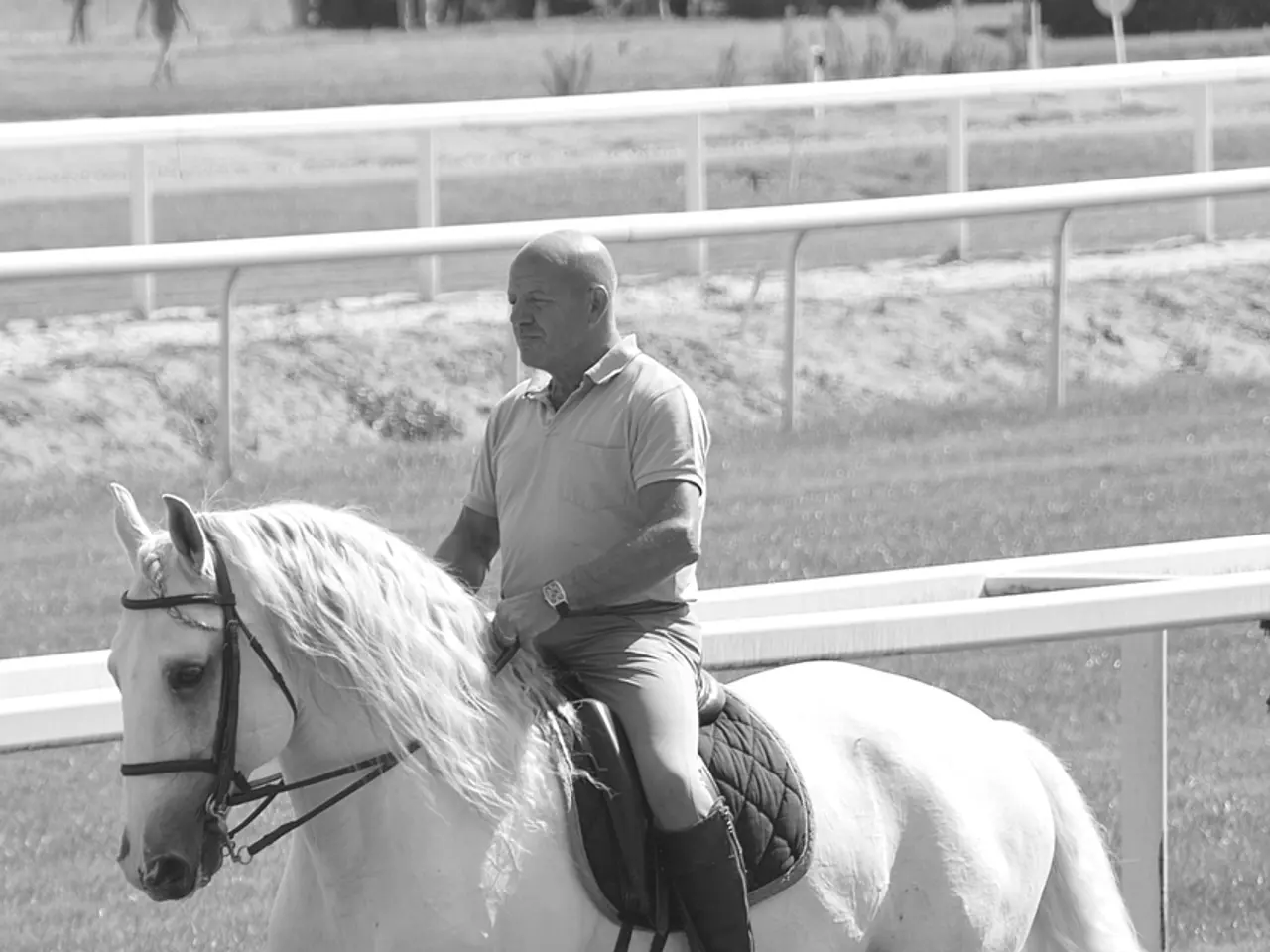Discussion on Travel-Related Anxiety in Horses, Featuring Dr. Kevin Keane
In a recent podcast episode, Dr. Kevin Keane, a renowned veterinarian and five-star three-day eventing athlete with over 40 years of experience, shared insights on managing horse travel effectively.
Dr. Keane, who practices in Chester County, Pennsylvania, has served as the team veterinarian for the US show jumping team, the Australian eventing team, and the Ecuadorian eventing team. His unique perspective comes from his extensive experience as both a rider and a veterinarian.
The episode aimed to help make early-morning trailer trips to favourite destinations less daunting for horse owners. Dr. Keane discussed various aspects of horse travel, including shipping boots, wraps, tail wraps, and trailer configurations.
One of the key concerns during horse travel is the impact on a horse's immune system. Dr. Keane talked about shipping fever and respiratory concerns, emphasising the importance of maintaining hydration and caloric intake for horses during travel.
Traveling with horses can be stressful and potentially harmful to their health. However, despite the uncontrollable factors such as traffic, weather, accidents, and a horse's individual eating and drinking habits, there is a lot that humans can do to help their horses fare well during travel.
Dr. Keane also discussed the horse's experience in the back of a trailer, highlighting the loud environment and the effort required for balancing. He shared his thoughts on horses' dispositions and prior travel experiences, providing practical tips to make travel less stressful for both horses and their owners.
The podcast episode also provided a mix of information and practical tips from Dr. Keane's veterinary science and personal experience. With a number of Olympic caliber clients, Dr. Keane has a wealth of knowledge and expertise to share with horse owners.
The episode is a valuable resource for anyone planning to travel with their horse, offering insights on how to manage travel effectively and ensure the wellbeing of their equine companion.








